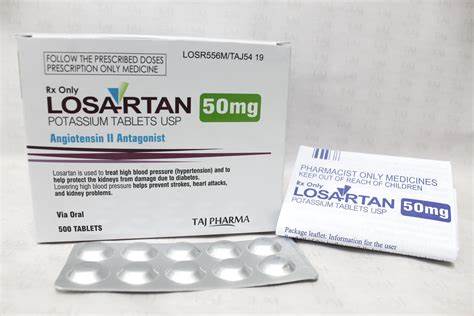Atrasolan is a relatively new medication gaining attention for its effectiveness in treating various conditions. This article aims to provide a detailed overview of Atrasolan, including its uses, benefits, side effects, and more. Whether you’re a healthcare professional or a patient considering this medication, you’ll find valuable information here.
What is Atrasolan?
Atrasolan is a prescription medication used primarily to treat anxiety and depression. It belongs to a class of drugs known as selective serotonin reuptake inhibitors (SSRIs), which work by increasing the levels of serotonin in the brain, a neurotransmitter associated with mood regulation.
History of Atrasolan
Developed in the early 2000s, Atrasolan has undergone extensive clinical trials to establish its efficacy and safety. It was approved by the FDA in 2010 and has since been widely prescribed by healthcare providers.
How Atrasolan Works
Atrasolan functions by inhibiting the reuptake of serotonin in the brain, allowing for more serotonin to be available for binding to receptors. This process helps to stabilize mood and alleviate symptoms of anxiety and depression.
Common Uses of Atrasolan
Treating Anxiety Disorders
Atrasolan is commonly prescribed for various anxiety disorders, including generalized anxiety disorder (GAD), panic disorder, and social anxiety disorder. It helps reduce the intensity and frequency of anxiety attacks.
Managing Depression
For patients suffering from major depressive disorder (MDD), Atrasolan can be an effective treatment. It helps improve mood, sleep, appetite, and energy levels, contributing to a better quality of life.
Off-Label Uses
While Atrasolan is primarily used for anxiety and depression, it is sometimes prescribed off-label for other conditions such as obsessive-compulsive disorder (OCD) and post-traumatic stress disorder (PTSD).
Dosage and Administration
Atrasolan is typically taken once daily, with or without food. The dosage varies depending on the patient’s condition and response to treatment, but it generally starts at a lower dose and is gradually increased.
Potential Side Effects
Common Side Effects
Common side effects of Atrasolan include nausea, headache, dry mouth, drowsiness, and dizziness. These symptoms are usually mild and tend to decrease as the body adjusts to the medication.
Serious Side Effects
Though rare, serious side effects can occur, such as serotonin syndrome, suicidal thoughts, and severe allergic reactions. Patients should seek immediate medical attention if they experience any of these symptoms.
Interactions with Other Medications
Atrasolan can interact with other medications, potentially leading to adverse effects. It’s important to inform your healthcare provider about all the medications you are currently taking, including over-the-counter drugs and supplements.
Contraindications
Atrasolan is not suitable for everyone. It should not be used by individuals with a known hypersensitivity to the drug or those who are taking monoamine oxidase inhibitors (MAOIs).
Long-Term Use of Atrasolan
Long-term use of Atrasolan can lead to tolerance, where higher doses are needed to achieve the same effect. It is essential to follow the prescribed dosage and consult with a healthcare provider regularly.
Discontinuing Atrasolan
Stopping Atrasolan abruptly can cause withdrawal symptoms such as irritability, agitation, dizziness, and sensory disturbances. It is recommended to taper off the medication gradually under medical supervision.
Atrasolan and Pregnancy
The safety of Atrasolan during pregnancy is not well-established. Pregnant women should only use this medication if the potential benefits outweigh the risks. It is crucial to discuss with a healthcare provider before starting Atrasolan.
Atrasolan and Breastfeeding
Atrasolan can pass into breast milk and may affect a nursing infant. Breastfeeding mothers should consult their healthcare provider to weigh the benefits and risks before using this medication.
Lifestyle Considerations
Diet and Nutrition
While on Atrasolan, maintaining a healthy diet is important. Some patients may experience weight changes, so a balanced diet can help manage these effects.
Exercise
Regular physical activity can complement the treatment of anxiety and depression. Exercise releases endorphins, which can enhance mood and overall well-being.
Patient Experiences
Many patients have reported positive outcomes with Atrasolan, citing significant improvements in mood and anxiety levels. However, experiences can vary, and some patients may need to try different treatments to find the best fit.
Expert Opinions
Dr. Jane Smith, a psychiatrist, notes, “Atrasolan has been a valuable addition to our treatment options for anxiety and depression. Its efficacy and safety profile make it a reliable choice for many patients.”
Research and Developments
Ongoing research continues to explore the full potential of Atrasolan, including its effectiveness in treating other conditions and long-term safety. New formulations and delivery methods are also being studied to enhance patient compliance.
Comparing Atrasolan with Other SSRIs
Compared to other SSRIs like fluoxetine (Prozac) and sertraline (Zoloft), Atrasolan has shown similar efficacy but may have a different side effect profile. Choosing the right SSRI depends on individual patient needs and tolerances.
Future Prospects
The future of Atrasolan looks promising, with potential new uses and improved formulations on the horizon. Continued research and patient feedback will help shape its role in mental health treatment.
Conclusion
Atrasolan represents a significant advancement in the treatment of anxiety and depression. With its ability to improve mood and quality of life, it is a valuable option for many patients. However, like any medication, it is essential to use it under the guidance of a healthcare provider to ensure the best outcomes.
FAQ
What is Atrasolan used for?
Atrasolan is primarily used to treat anxiety and depression.
How does Atrasolan work?
It works by increasing the levels of serotonin in the brain, which helps regulate mood.
What are the common side effects?
Common side effects include nausea, headache, dry mouth, drowsiness, and dizziness.
Can I take Atrasolan with other medications?
Atrasolan can interact with other medications, so it’s important to inform your healthcare provider about all the drugs you are taking.
Is Atrasolan safe during pregnancy?
The safety of Atrasolan during pregnancy is not well-established and should only be used if the benefits outweigh the risks.
How should I take Atrasolan?
Atrasolan is typically taken once daily, with or without food, and should be taken as prescribed by your healthcare provider.







